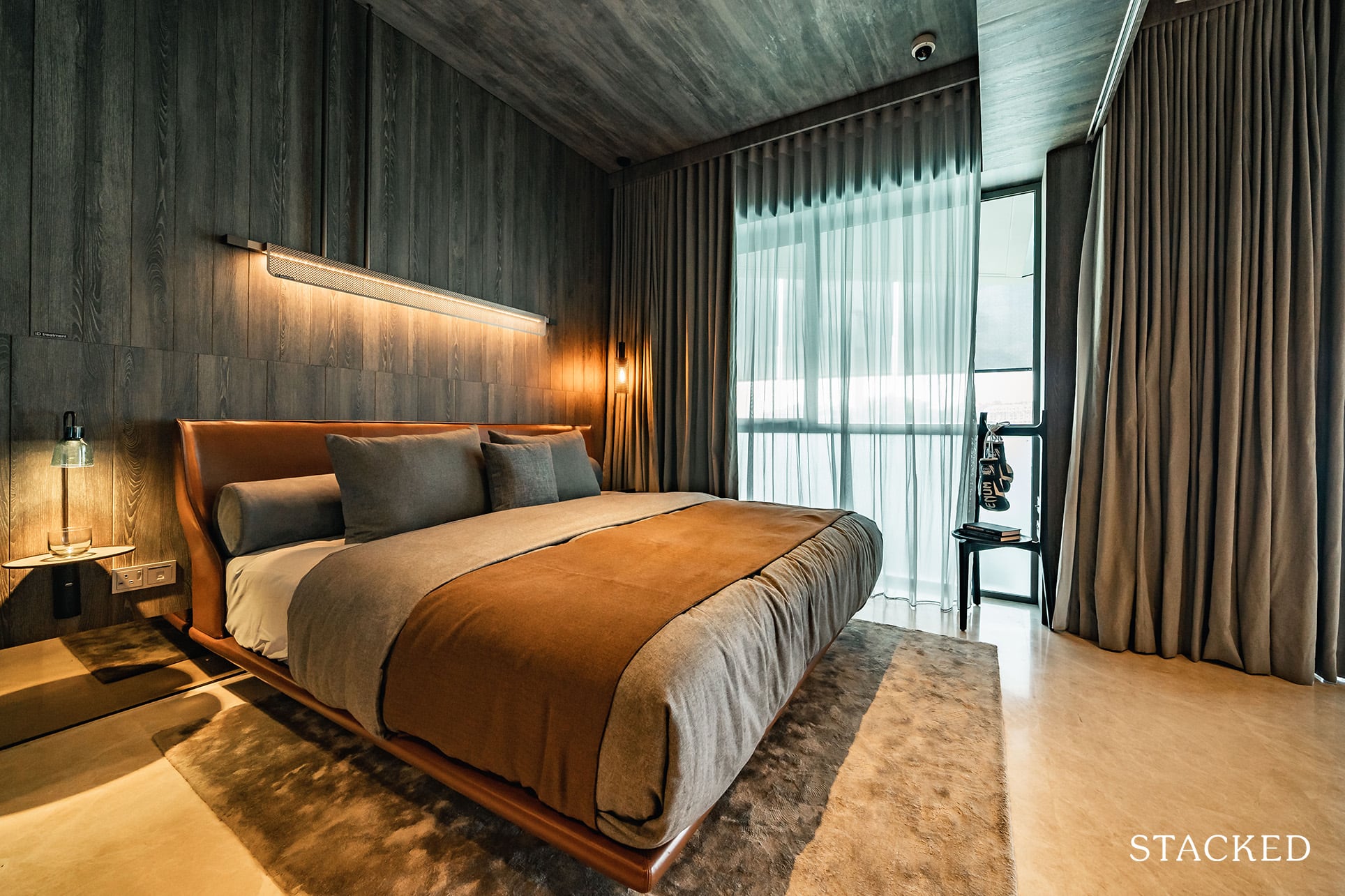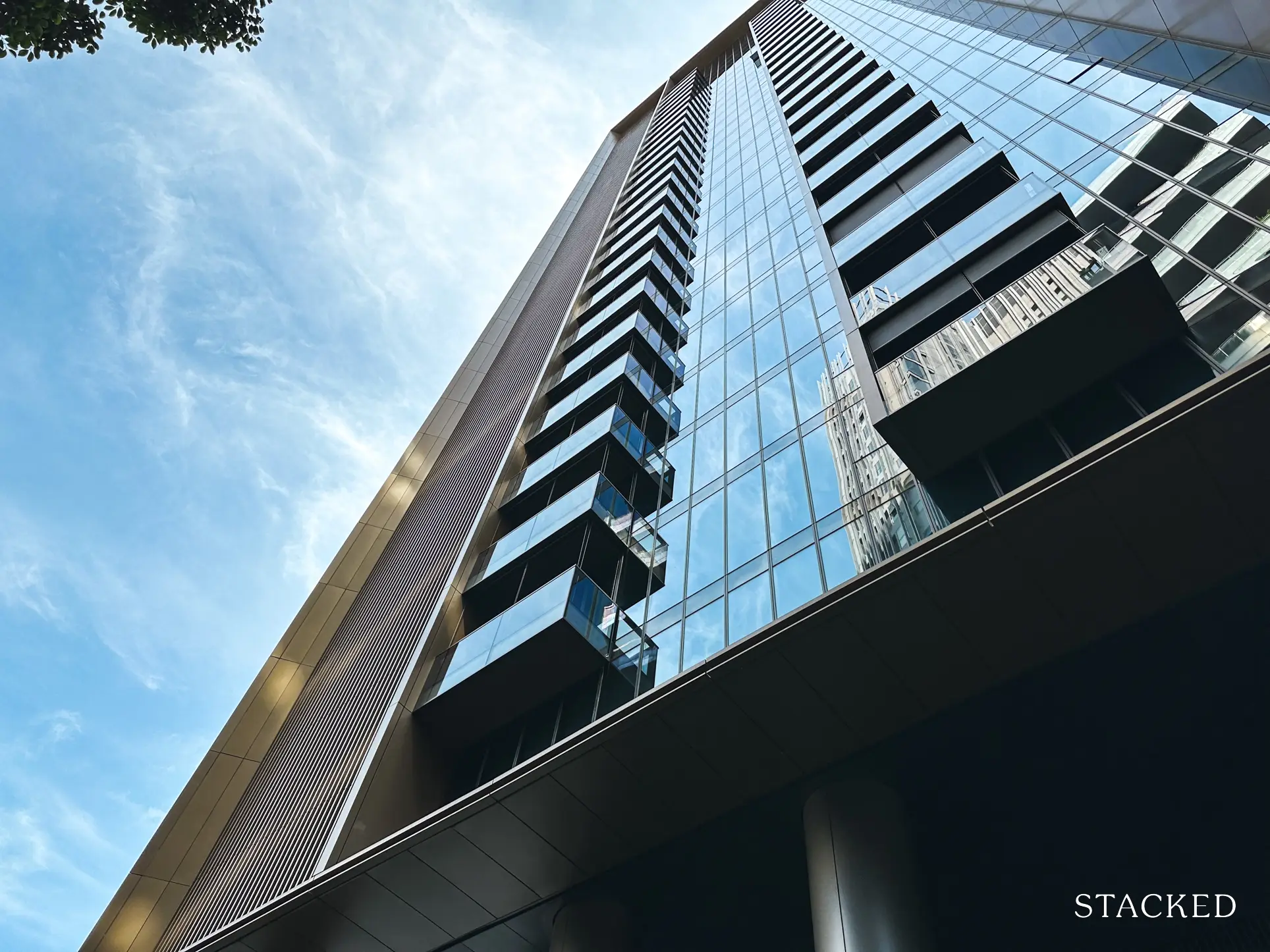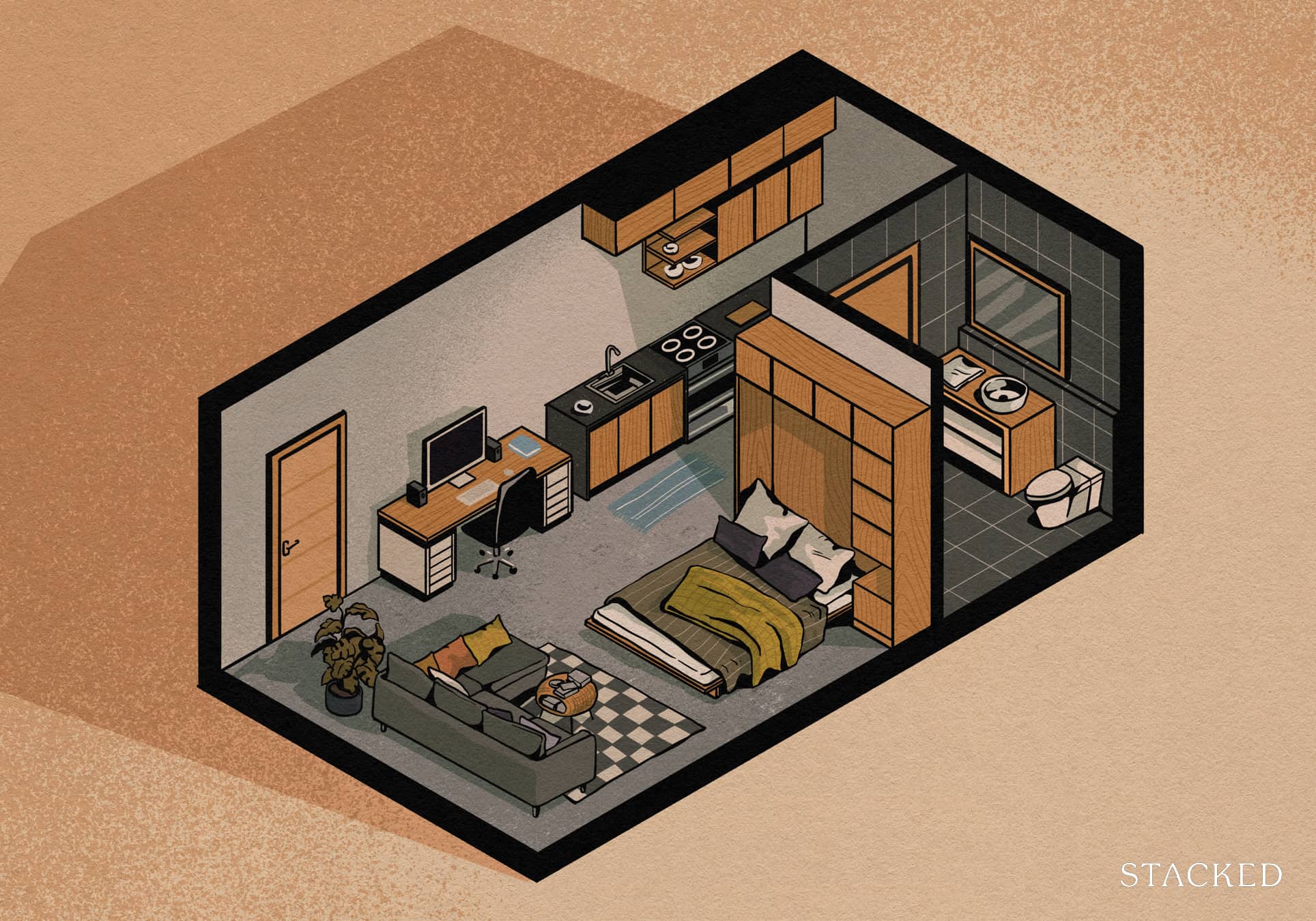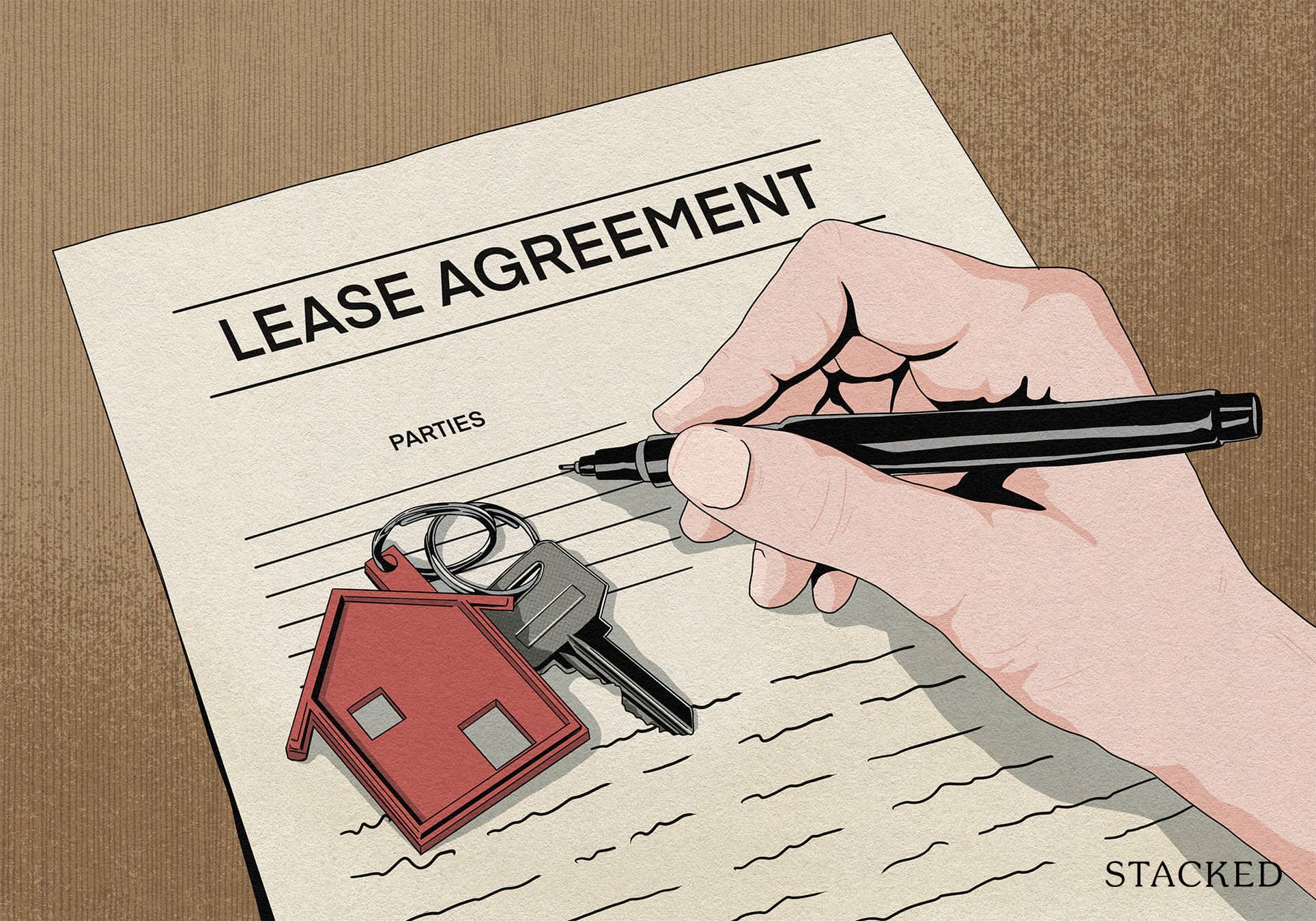6 Potential Risks Of Buying A One-Bedroom Apartment In Singapore: What You Need To Look Out For
October 2, 2024

In an environment of rising interest rates and high prices, one-bedroom condos are often seen as a tempting buy due to their lower quantum. For many, they represent the most affordable form of private property ownership and a potential foot in the door of the rental market. But is the lower price point really as safe as it seems? While a smaller quantum might reduce some risks, it doesn’t eliminate the potential downsides—especially if unexpected life events arise.
For example, if your elderly parents suddenly need a place to stay, or a sibling urgently requires accommodation, having only a one-bedder may limit your ability to help. With just 500 sq. ft. or less, you might find it hard to accommodate anyone beyond yourself. Even a two-bedder offers little extra flexibility, leaving your loved ones possibly needing to rent somewhere else, while others with larger homes might temporarily provide shelter.
So before jumping in, make sure to weigh these key risks of buying a one-bedder:
So many readers write in because they're unsure what to do next, and don't know who to trust.
If this sounds familiar, we offer structured 1-to-1 consultations where we walk through your finances, goals, and market options objectively.
No obligation. Just clarity.
Learn more here.
1. Where you buy your one-bedder condo matters
Of course, if you are looking to buy for your own stay, then anything goes. But if you are thinking about a potential exit down the road, the location will matter based on the unit type.
For instance, consider purchasing a one-bedroom unit in a prime area like Cuscaden. While the design may be impressive and the surroundings luxurious, the key question is: how many buyers in the market can afford such a niche property when it’s time to sell? In this price range, buyers tend to prioritise space, as seen with developments like Park Nova, where larger units were the first to sell out.

Likewise, you will need to also take into account the supply of one-bedders in the area. You could be in an area with high rental demand, but also an oversupply of one-bedders – which obviously isn’t ideal when it comes time to sell.
2. For first-time home buyers, remember there’s a wait-out period to buy flats, if you ever sell the one-bedder
When you sell a private property, you need to wait 15 months before you can buy a resale flat*, and 30 months before you can buy a BTO flat. Now unless your one-bedder will be your first and only home, this can cause complications further down the road.
The most obvious example will be if you get married, and need a bigger place to settle down in; or if you’re renting out the one-bedder, and your current accommodation has to change (e.g., you’ve been living with parents or in-laws so far, but now they’re selling).
Apart from the complications of selling (hopefully, it’s not a down market at the time) the wait out period can cause huge logistical issues. You’ll probably end up having to rent over the 15-month wait out, or 30 months if you want a BTO flat. And remember that if you pick the resale option, you’ll be paying a higher price compared to a BTO flat.
We’d suggest having a clear exit strategy in mind before you buy, just in case this happens. And if you already know you’re getting married, having your first child, etc. in a few years, then maybe it’s better to save up and make your first home a bigger one (maybe just start from a bigger HDB flat first, and upgrade from there).
*With the exception of 55-year old Singaporeans, who are downgrading to 4-room or smaller flats.
3. Be aware of how many other small units are in the development
There can be significant differences in gains or other performance, depending on the unit mix. For example: a small unit in a condo filled with other one or two-bedders can result in excessive competition, when it comes time to find tenants. It can also affect future resale prospects, as some homebuyers dislike living in all-small unit condos – even if they’re single themselves (some people just don’t like living where most tenants are transient tenants).
We’ve done a study on this across multiple projects; for specifics on how it affects resale gains (which will be published soon).
4. As far as small units go, one-bedders may have drawbacks versus two-bedders
Some realtors may caution you against getting anything smaller than a two-bedder. There is some substance to this, as two-bedders may be easier to rent out: they give tenants the option of finding a roommate. This can lower the chances of a vacancy during a tough market.

There’s also a negotiation issue: you can sometimes persuade someone to pay a bit more for a two-bedder, for the extra space; but it’s much harder to get someone to accept a one-bedder if they’ve decided it’s too small. For some couples, it’s just immediately out of the question.
Finally, in a pinch, you may find that you and your spouse can at least use a two-bedder as a home, if there are too many vacancies, a soft rental market, etc. But a one-bedder may just stay useless and vacant in such a situation.
5. There’s much more susceptibility to the rental market
Even if you don’t rent out your one-bedder, the rental market can still affect its gains. The reason is that one-bedders are a favourite rental asset, and the prospective buyer pool will likely consist of some landlords.

The rental market can be surprisingly volatile. During a downturn, for example, companies may scale back on the number of expatriate workers, or shrink housing allowances. This can negatively impact the value (or perceived value) of a one-bedder, particularly units in central areas (where most expats rent).
Government policies, like cooling measures, also play a part here. Raising ABSD rates on the second property might boost one-bedder sales, as investors turn to cheaper options than family condos; but it might also crush the interest in rental assets altogether, in which case, one-bedders may have issues attracting buyers. Remember, family units are still the majority of condo buyers, and most have no use for a one-bedder unit.
6. Remember you have less of a say in an en-bloc, or at general meetings
One-bedders have a smaller square footage, and smaller share value. This is great for keeping maintenance costs low. However, remember that an en-bloc requires 80 per cent consensus, and that’s not based on the number of owners: it’s based on the amount of the strata area owned.
This means the owners with larger family condos will have more say, in both the day-to-day running of the condo, as well as whether to approve an en-bloc sale. It’s not unheard of for small unit owners to feel bullied or ignored, even as they live within the same project.
Overall, a one-bedder condo should be thought of as a rental yield strategy, as the lower quantum can make it an attractive rental asset. However, family-sized condos are a safer bet if you want resale gains, simply based on the larger pool of prospective buyers.
As far as home ownership goes, one-bedders do require you to be confident of your lifestyle situation; there’s literally less room to adapt, if you find a partner or are adding to your family.
At Stacked, we like to look beyond the headlines and surface-level numbers, and focus on how things play out in the real world.
If you’d like to discuss how this applies to your own circumstances, you can reach out for a one-to-one consultation here.
And if you simply have a question or want to share a thought, feel free to write to us at stories@stackedhomes.com — we read every message.
Ryan J. Ong
A seasoned content strategist with over 17 years in the real estate and financial journalism sectors, Ryan has built a reputation for transforming complex industry jargon into accessible knowledge. With a track record of writing and editing for leading financial platforms and publications, Ryan's expertise has been recognised across various media outlets. His role as a former content editor for 99.co and a co-host for CNA 938's Open House programme underscores his commitment to providing valuable insights into the property market.Need help with a property decision?
Speak to our team →Read next from Property Advice

Property Advice We Sold Our EC And Have $2.6M For Our Next Home: Should We Buy A New Condo Or Resale?

Property Advice We Can Buy Two HDBs Today — Is Waiting For An EC A Mistake?

Property Advice I’m 55, Have No Income, And Own A Fully Paid HDB Flat—Can I Still Buy Another One Before Selling?

Property Advice We’re Upgrading From A 5-Room HDB On A Single Income At 43 — Which Condo Is Safer?
Latest Posts

Property Investment Insights This 55-Acre English Estate Owned By A Rolling Stones Legend Is On Sale — For Less Than You Might Expect

Singapore Property News I’m Retired And Own A Freehold Condo — Should I Downgrade To An HDB Flat?

New Launch Condo Reviews What $1.8M Buys You In Phuket Today — Inside A New Beachfront Development





































0 Comments